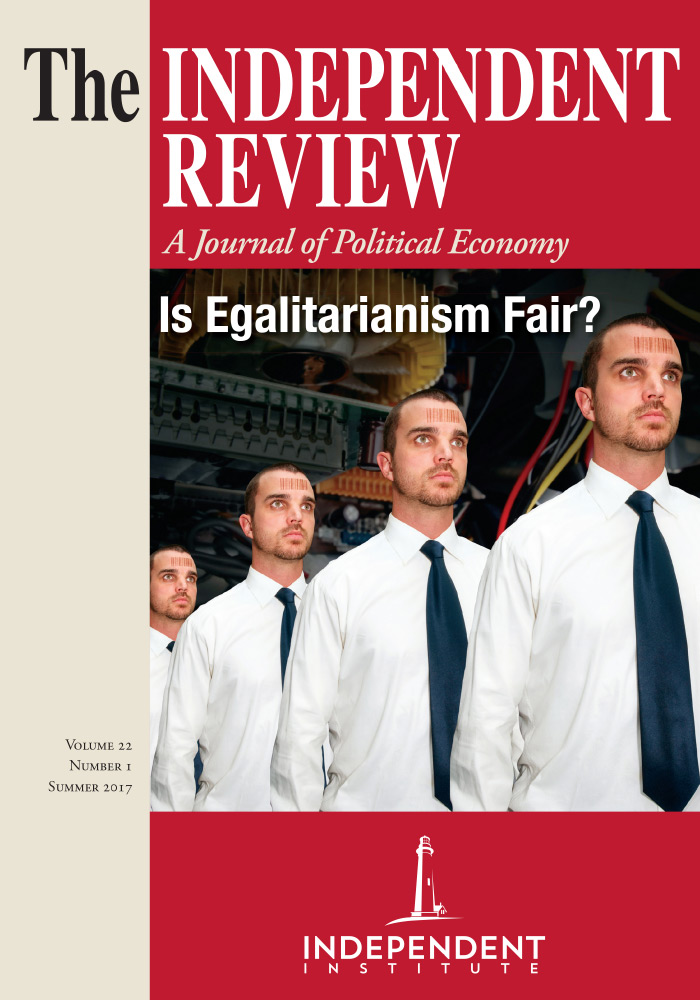Does the existence of brute luck—chance events and circumstances that are beyond a person’s control—support the case for trying to make society more egalitarian? Arguments for ‘luck egalitarianism’ are woefully incomplete unless they sufficiently address (1) the role of choice in shaping outcomes, (2) the difficulty of crafting policies that promote egalitarian goals, and (3) the likelihood that even well-crafted policies would not work out as envisioned.
Michael C. Munger is Senior Fellow and former co-editor of The Independent Review at the Independent Institute, and Professor of Political Science, Economics and Public Policy and Director of the Philosophy, Politics, and Economics Program at Duke University.
| Other Independent Review articles by Michael C. Munger | ||
| Fall 2024 | Tax Turmoil: A Dia Fenner Economic Thriller | |
| Fall 2024 | Retrieving Liberalism from Rationalist Constructivism, Volume I; Retrieving Liberalism from Rationalist Constructivism, Volume II | |
| Fall 2024 | The Dispersion of Power: A Critical Realist Theory of Democracy | |
| [View All (83)] | ||










